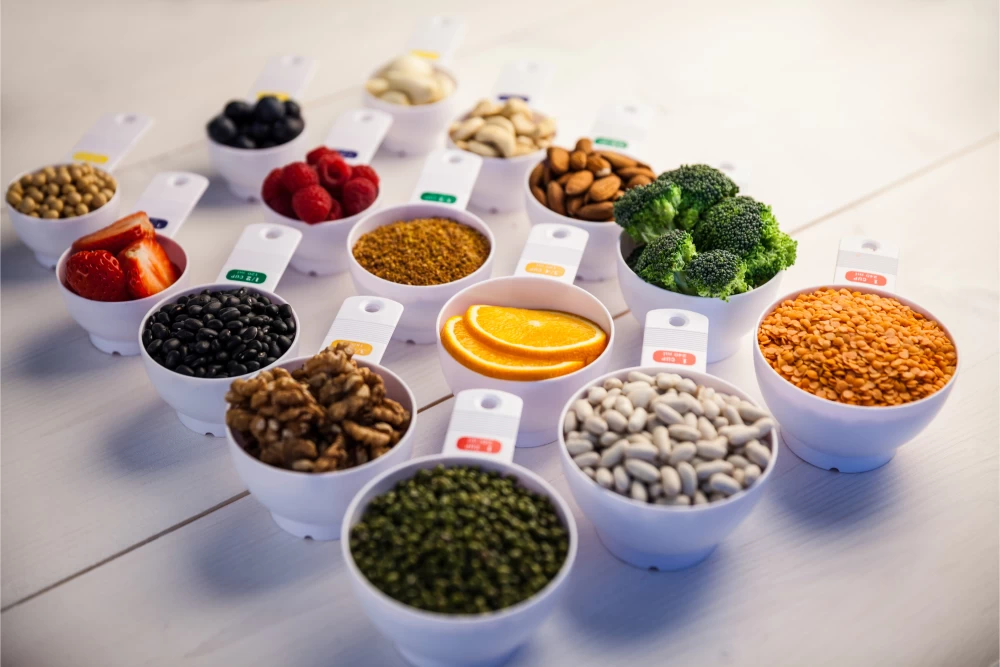
- 20th March 2023
Table of Contents
What is Fatty Liver?
Fatty liver disease is a condition that occurs when there is an excessive accumulation of fat in the liver. The condition can be caused by several factors, such as obesity, high cholesterol levels, and diabetes. Fatty liver disease can also be caused by excessive alcohol consumption. When left untreated, fatty liver disease can lead to more severe conditions such as cirrhosis or even liver cancer. One of the most important aspects of managing fatty liver disease is ensuring that you are eating a healthy diet with proper portion control. Portion control plays a critical role in reducing the amount of fat that accumulates in your body and helps to maintain healthy blood sugar levels. Eating smaller portions throughout the day helps reduce insulin resistance and decreases inflammation in the body. Incorporating whole grains, lean proteins, fruits, and vegetables into your diet will help ensure you are getting adequate nutrition while not consuming too many calories. It’s essential to limit foods high in saturated fats like fried foods and red meat while incorporating more plant-based sources of protein like legumes or tofu. By following a balanced diet with proper portion control techniques, individuals diagnosed with fatty liver disease may potentially manage their condition without requiring medication or surgery.
Causes of Fatty Liver
Fatty liver disease is a condition where the liver becomes overloaded with fat, leading to inflammation and damage. One of the main causes of fatty liver disease is an unhealthy diet that is high in calories, saturated fats, and sugar. When we consume excess calories from food and drinks, our body stores the excess energy as fat in various organs like the liver. Over time, this can lead to an accumulation of fat in the liver cells, causing inflammation and scarring. Another major cause of fatty liver disease is obesity or being overweight. In addition to consuming too many calories, carrying excess weight puts additional stress on the liver as it has to work harder to process all the extra fat. Other medical conditions like type 2 diabetes, insulin resistance, high blood pressure also increase your risk for developing fatty liver disease. If you have been diagnosed with fatty liver disease or wish to prevent it from happening in future you should consider adopting a healthy lifestyle plan that includes portion control when eating foods rich in calorie content such as carbohydrates (starches), fats and oils. Maintaining a healthy weight by regular exercising can also reduce your chances of getting this condition while ensuring optimum functionality for your vital organs including but not limited to your liver.
Dietary Recommendations
If you have been diagnosed with fatty liver disease, dietary changes are the first line of defense in managing the condition. One important aspect of these changes is portion control. Eating too much food, even if it is healthy, can still lead to weight gain and worsen the symptoms of fatty liver disease. To maintain proper portion control, it's important to pay attention to serving sizes and limit your intake of high-calorie foods like sweets and fried foods. It can also be helpful to use smaller plates or measuring cups to ensure that your portions are appropriate. Additionally, focusing on nutrient-dense foods like vegetables, lean protein sources, and whole grains can help you feel fuller for longer periods of time while providing essential nutrients for overall health. Overall, maintaining appropriate portion control is a key component of a healthy diet for those with fatty liver disease. By paying attention to serving sizes and focusing on nutritious choices, individuals can take an active role in managing their condition and promoting better health outcomes.
Benefits of Portion Control
Portion control is an essential component of a healthy diet, especially for those with fatty liver disease. By controlling the amount of food you consume in each meal, you can keep track of your calorie intake and ensure that you are not overeating. Overconsumption of calories can lead to weight gain and further aggravate fatty liver disease. In addition to managing weight, portion control also helps regulate blood sugar levels. Eating too much food in one sitting can cause a spike in blood sugar levels, which may be harmful for individuals with diabetes or pre-diabetes. Portion control prevents excessive glucose from entering the bloodstream and keeps blood sugar levels stable. Lastly, practicing portion control promotes mindful eating habits. It encourages individuals to pay attention to their hunger cues and eat until they are comfortably full, rather than consuming large amounts of food out of habit or boredom. This leads to better digestion and absorption of nutrients from the food consumed by the body while reducing the risk of developing chronic diseases such as heart disease and type 2 diabetes.

Tips for Successful Portion Control
Portion control is a crucial aspect of any diet, especially when it comes to managing fatty liver disease. Overeating or consuming large portions of high-calorie foods can lead to weight gain and an increase in liver fat. One effective way to manage portion sizes is by using smaller plates, bowls, and cups. This can trick your mind into feeling satisfied with smaller portions. Another tip for successful portion control is to plan your meals ahead of time. Meal prepping not only saves time but also ensures that you are eating the right amount of food in each meal. Additionally, incorporating more fruits and vegetables into your diet can help fill you up without adding excess calories, making it easier to practice portion control. Lastly, be mindful of snacking habits as they tend to add up quickly throughout the day. Try opting for healthy snacks such as nuts or raw veggies instead of calorie-dense options like chips or candy bars. With these tips in mind, practicing successful portion control can become a sustainable habit leading to better overall health outcomes in individuals with fatty liver disease.
Reversing Fatty Liver with Diet
Portion control plays a crucial role in any diet plan, especially for those suffering from fatty liver disease. When dealing with this condition, it is essential to monitor the intake of calories and fats as excess consumption can lead to liver damage. Consuming smaller portions at frequent intervals helps maintain steady blood sugar levels, reduces insulin resistance, and aids in weight loss. Including nutrient-dense foods such as fruits, vegetables, whole grains, and lean proteins in controlled portions provide essential vitamins and minerals required for optimal liver function while preventing further damage. It is important to avoid processed and high-fat foods that increase inflammation levels in the body leading to worsening of fatty liver symptoms. Additionally, incorporating healthy fats like avocados, nuts/seeds or fish oil in moderation helps lower cholesterol levels while promoting good heart health. Monitoring portion sizes also assists individuals on their journey towards better eating habits by developing mindful eating practices that promote long-term success in reversing fatty liver disease.
Conclusion
In conclusion, portion control is a crucial aspect of any fatty liver diet plan. It helps to regulate the amount of calories and fat intake, which aids in weight loss and improves liver function. Additionally, practicing portion control can also help prevent overeating and maintain a healthy body weight. To ensure effective portion control, it is important to use measuring cups or food scales to accurately determine serving sizes. It is also recommended to eat slowly, savoring each bite and allowing time for the brain to register fullness signals. Furthermore, incorporating more fruits and vegetables into meals can help fill up the plate without adding excessive calories or fat. In summary, making mindful choices regarding portions can have significant benefits for those with fatty liver disease. By managing intake through portion control along with other lifestyle changes such as exercise and avoiding processed foods high in sugar or cholesterol levels can improve overall health outcomes.














